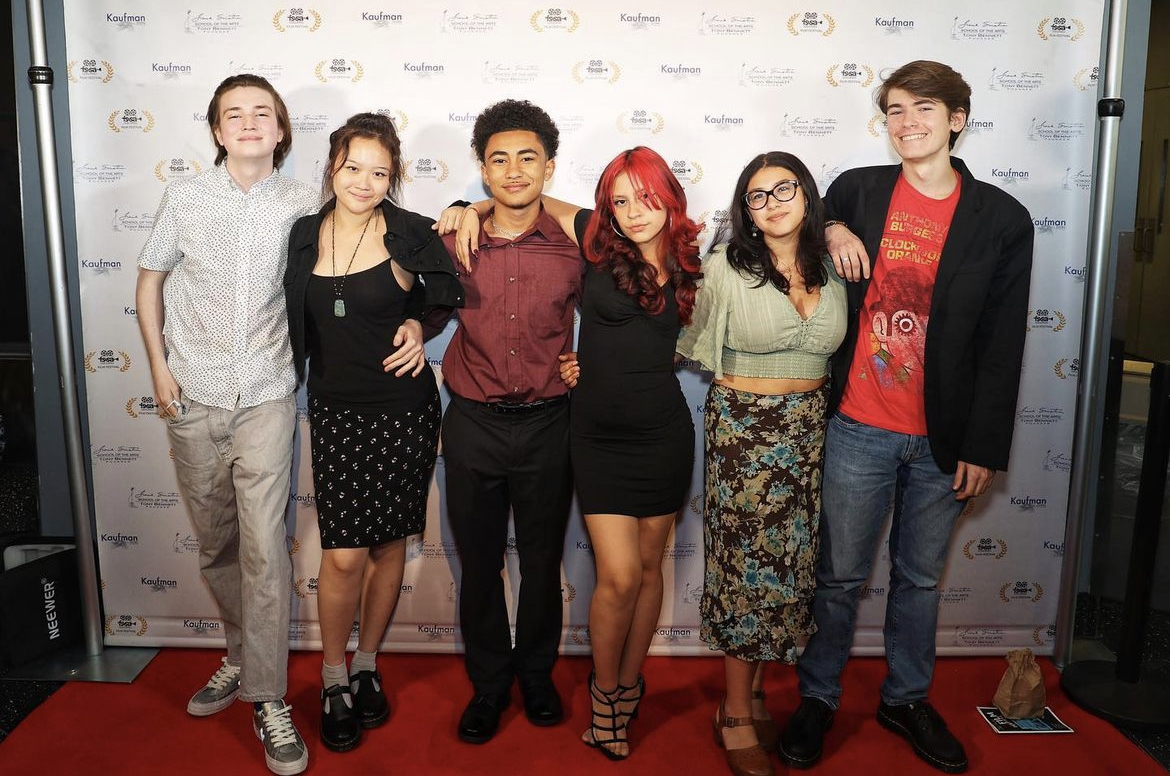
What story would you tell if you had a mic, ten minutes and a room full of strangers?
That’s what The Moth — a nonprofit that promotes the art of storytelling through a popular podcast, radio hour and live events — challenges people to do across the nation and in New York City.
The organization, which hosts 500 live shows a year and sees 50 million podcast downloads annually, is putting on a night of storytelling on Feb. 4 called Mainstage, where regular people, including two New York residents, recount astounding memories of loss, change and realization.
The event in Harlem is just one of many programs the organization runs across 29 cities.
On Monday, we spoke with Suzanne Rust, the organization’s senior curatorial director about how Mainstage works.
What is Mainstage’s format like?
Five storytellers, including two from the New York City area, take the stage one at a time to recount actual happenings in their lives to form a cohesive story. There’s no script and no reading — it’s just natural, according to Rust.
"They’re up there on their own," she said. "We don’t want it rehearsed. That’s the kiss of death. It’s meant to be natural, spontaneous, relatable and vulnerable … we want people who are willing to tell on themselves."
But it’s not ranting, comedy or about reciting something you’ve memorized — it’s about sharing a story you know.
How do they decide which ones to feature?
Stories can be about anything, but they need to have an "extra twist" to draw in readers and bond with them, Rust said. Even letting the audience in on an embarrassing moment, describing a shameful moment or sharing an enlightened thought can offer a message to someone who might need it.
Smaller moments that transform a person are key, too.
"There must be some kind of change in the person involving some pivotal moment in their lives," Rust said. "When you share something, it makes you stronger and you become a messenger for something beautiful."
In the past, Mainstage has featured stories about escaping death during the Holocaust, the quest to find ancestors and coming out as gay, among thousands of others.
"A woman talked about looking into her ancestry (she is African-American) and going down south to find the little markers of where her people were buried," Rust said. "She spoke about her quest to give them tombstones so that their names would be said and repeated. She said it was beautiful there but she was angry that it was beautiful."
How does The Moth work with storytellers?
Each storyteller works with the director of the event to craft their story so that it captivates. There are rehearsals, where participants are given notes that aim to get the story in a "more solid place," Rust said. "For the Moth stage, we have to elevate them a little."
That means highlighting more critical moments in stories, but it doesn’t mean memorization.

Who can participate?
While this event is now closed to submissions, anyone can submit their story to be considered by The Moth’s staff and there are many ways to do so:
- Give a two-minute preview of your story on The Moth’s pitchline (877-799-MOTH) or submit a two-minute recording of your story on themoth.org. Each one is listened to and if there’s a spark or an interesting voice, you’ll get a call back.
- Attend a StorySLAM. These weekly, open-mic storytelling competitions are open to anyone with a five-minute story that coincides with the night’s theme. Themes range from "something that propelled you" to something you saw "go down" and more. The Moth listens to recordings from the SLAM and looks for stories they could see on stage.
The Moth also aims to find commonality across diverse backgrounds.
"It’s about making sure we’re getting different points of view and being sensitive to the current times and being honest and raw," she said. "The compassion you can get from hearing a story is the most beautiful thing to me."
In the past, for example, people in the Muslim community have shared how they’ve felt marginalized after the 9/11 attacks despite being American.
"It’s harder to hate from close up," Rust said. "These stories are extremely moving."
Why go to Mainstage?
"It’s a window into another reality," Rust said.
The Moth Mainstage is for those who are curious about the world and how people live and offers a way to build compassion a story at a time, she said.
"Listen with open ears," she said. "You can get so much out of each other."

















